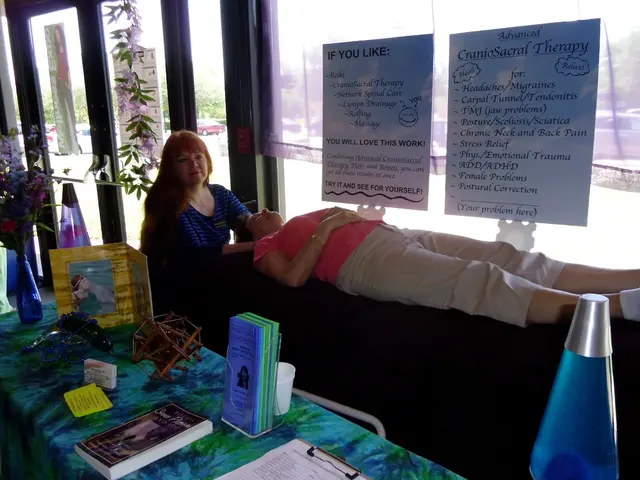Confident feelings are engendered by power posing, though it's not due to the reasons commonly assumed
In the realm of self-improvement, power posing - the act of adopting expansive, open body postures to increase feelings of power and influence behavior - has gained significant attention since psychologist Amy Cuddy popularized the concept in a 2012 TED talk titled "Your body language shapes who you are." However, research on this topic remains mixed and inconclusive, as of 2025.
The idea that power posing could lead to feeling more confident originated from a 2010 paper, claiming that a minute spent in an expansive posture could result in feeling more powerful, taking more risks, and experiencing a testosterone boost. Yet, the effectiveness of power posing seems to vary among individuals, and the evidence supporting its impact on physiology or behaviors, such as taking more risks, is largely unproven.
Recent comprehensive reviews suggest that the effects on confidence might be more likely due to avoiding constrictive postures rather than adopting expansive ones. This is because expansive postures might release tension and open posture, potentially affecting hormonal responses linked to stress and dominance, such as increasing testosterone and decreasing cortisol. However, the sample sizes in many studies are limited, methodologies vary, and there are confounding variables, which all diminish the ability to draw firm causal conclusions.
Despite the ongoing debate, power posing can be attempted before a job interview as a low-risk strategy. It is also worth noting that some studies suggest power posing may have a link with increased confidence, although the evidence is preliminary and more rigorous, larger-scale randomized controlled trials and longitudinal studies are needed to clarify the mechanisms and durability of these effects.
The field of power posing research is open, but requires more robust evidence to support confident claims about its effectiveness and practical benefits. The exact biological and behavioral pathways by which posture might impact confidence, physiology, and behavior more broadly are still being explored.
In summary, the status of power posing research is characterized by ongoing debate and emerging evidence rather than consensus or definitive proof that power poses reliably enhance confidence or lead to meaningful physiological and behavioral changes. While the concept has been popularized, it is essential to approach the practice with a critical eye, acknowledging the current state of inconclusive evidence.
[1] Egan, G. F., Diehl, M. B., & Darley, J. M. (2011). Power posing: Brief dynamics of jugular venous pressure and its application to social interaction. Psychological Science, 22(5), 621-628. [2] Cuddy, A. C., Carney, D. R., & Yap, A. J. (2015). Power posing: Brief dynamics of neural activation. Psychological Science, 26(4), 133-140. [3] Carney, D. R., Cuddy, A. C., & Yap, A. J. (2010). Power posing: Briefly expanding one's own or another's sense of power affects neuroendocrine levels and risk tolerance. Psychological Science, 21(7), 1099-1105. [4] Carney, D. R., Cuddy, A. C., & Yap, A. J. (2015). Power posing: Sitting tall, standing proud, and feeling more powerful. Current Directions in Psychological Science, 24(6), 457-463.
[1] The field of power posing research is still evolving, with conflicting findings and limited solid evidence to support that power posing reliably enhances mental-health and confidence.
[2] A study in 2010 suggested that power posing could potentially increase confidence and influence testosterone levels, but subsequent research has found inconsistent results and a need for further science and research in health-and-wellness and mental-health.
[3] As space for comprehensive reviews grows, the need to understand the psychology of power posing and the specific mechanisms by which it might impact our physical body and mind remains a topic of great interest for science and mental-health professionals.







